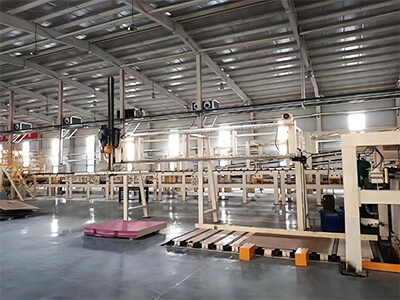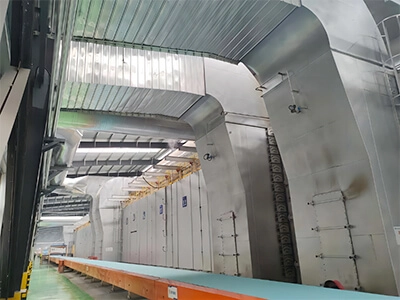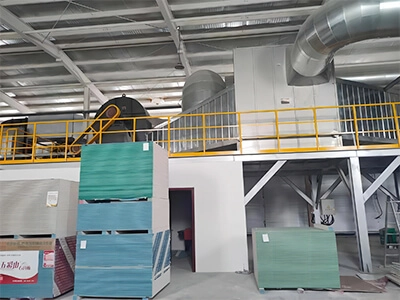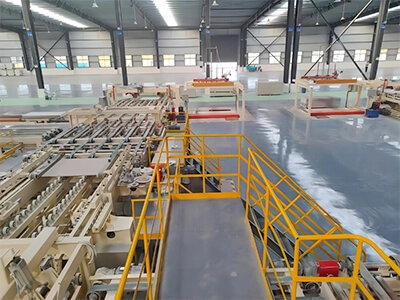
Gypsum Board Machine Factory

Paper Faced Gypsum Board Machinery

Produce Gypsum Board

Paper Faced Gypsum Board Production Line
Material conveying
The crushed Plaster raw material is transported by a hoist to a storage bin for backup. The storage bin is designed according to the requirements for material storage time to ensure a stable supply of materials. At the same time, elevators are used for material turnover in various parts to reduce the floor area.
Plastering MachineProcessing technology
Phase 1: Crushing
The large Plaster is crushed by a crusher to a feed fineness of 15mm-50mm that can enter the grinding machine.
Phase 2: Grinding
The crushed small pieces of Plaster are sent to the silo through a hoist, and then evenly and quantitatively fed into the grinding chamber of the grinding machine for grinding through a vibrating feeder.
Stage 3: Grading
The Plaster powder after grinding is graded by a powder concentrator, and the unqualified powder is graded by the powder concentrator and returned to the mill host for re grinding.
Stage 4: Powder Collection
The Plaster powder that meets the fineness requirements flows through the pipeline and enters the dust collector for separation and collection. The collected finished powder is transported to the finished material warehouse through the discharge port by a conveying device, and then packaged uniformly using a powder loading tanker or an automatic packaging machine.
Plaster, also known as fine-grained stone, is a hydrate of calcium sulfate, which is white or colorless and transparent. Natural Plaster is non-toxic, harmless, and non corrosive to the human body. It is usually crushed and ground into Plaster powder and is widely used in various industries. Next, I will give you a detailed introduction to the Plaster grinding process.